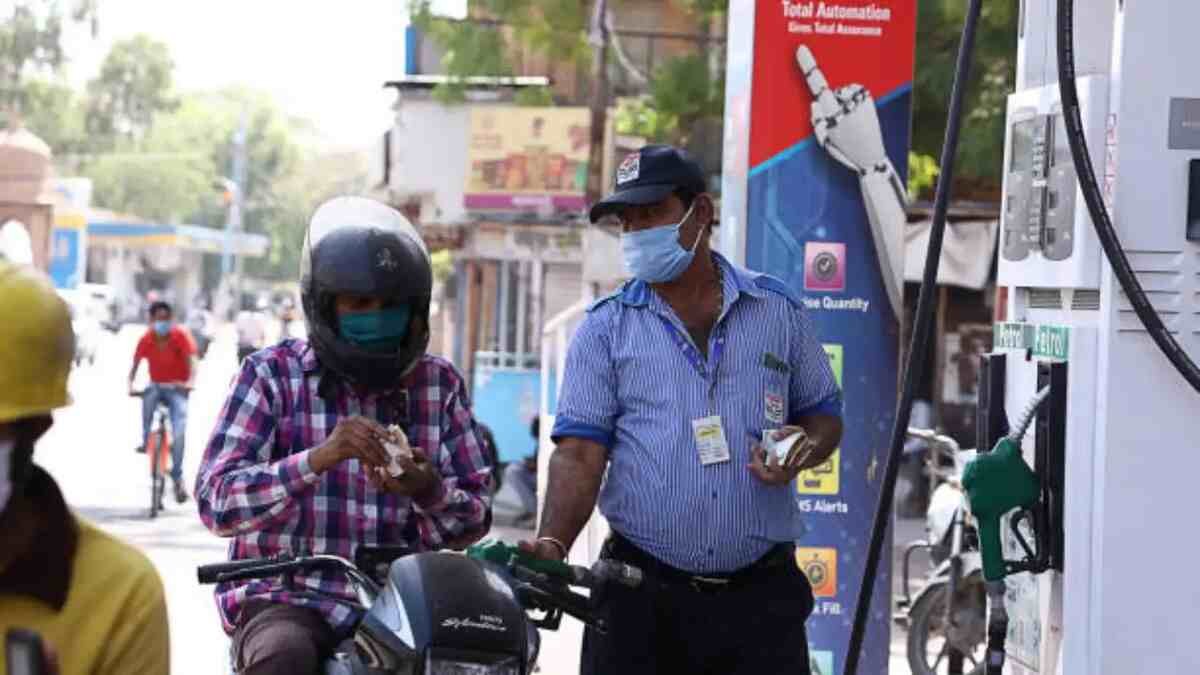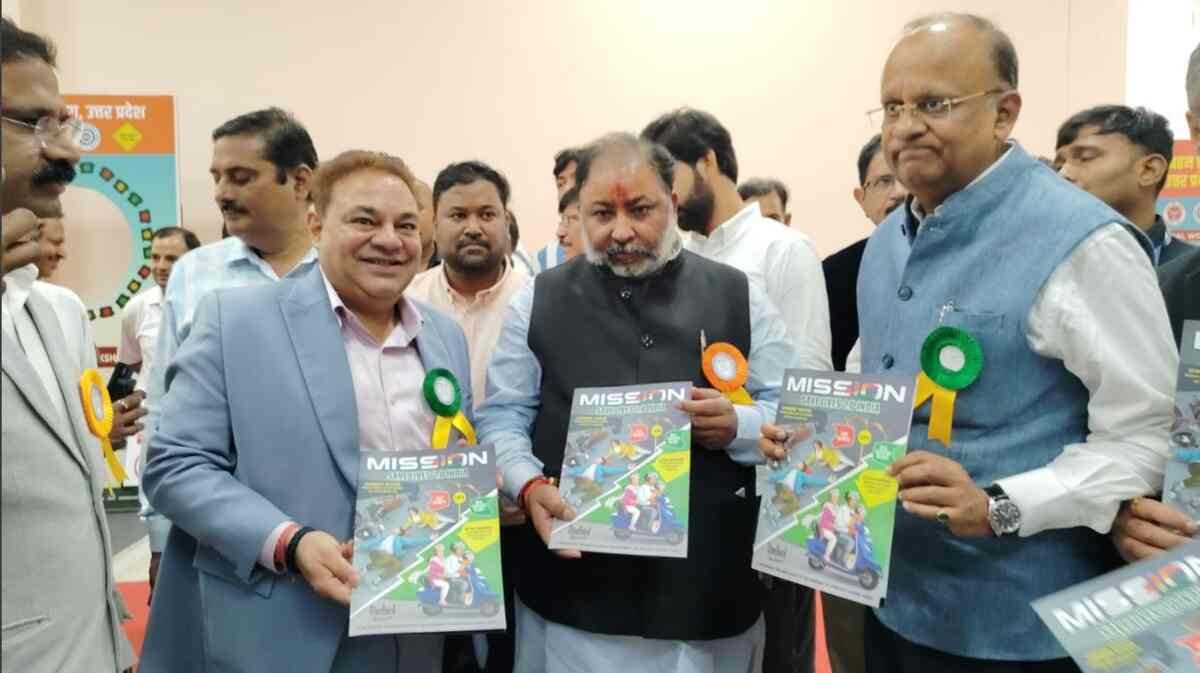New Delhi, July 02, 2025: The 25th National Workshop on Road Safety & Best Practices kicked off in the national capital with a resounding call to action—ensuring safer roads through policy, awareness, enforcement, and innovation. Jointly organized by the All India Federation of Motor Vehicle Department Technical Executive Officers Association and the Transport Regional Inspectors Service Association, this two-day event brought together key stakeholders from government, industry, and civil society.
Hon’ble Transport Minister Dayashankar Singh Highlights Progress in Uttar Pradesh
Inaugurating the workshop, Hon’ble Transport Minister of Uttar Pradesh, Shri Dayashankar Singh, emphasized the significant progress his state is making in road safety, despite resource limitations.
“Uttar Pradesh is making great strides toward road safety. Our initiatives focus on critical areas such as vehicle fitness and child awareness programs. With limited resources, we are achieving measurable impact,” he said.
He further reiterated that the state government, under the leadership of Hon’ble Chief Minister Yogi Adityanath, is working in sync with the Hon’ble Prime Minister’s vision for a Viksit Bharat by 2047, where road safety will play a pivotal role in sustainable development.
Road Safety is a Humanitarian Imperative, Not Just a Statistic: Transport Commissioner Brijesh Narayan Singh
Transport Commissioner Shri Brijesh Narayan Singh delivered a thought-provoking message on the importance of approaching road safety from a humanitarian perspective.
“The Chief Minister’s target to reduce accident fatalities by 50% is not just an administrative benchmark—it is a moral and humanitarian goal. Road safety is about protecting lives, not just managing numbers,” he stated.
He outlined the ‘Vision 2030 Roadmap’ developed by the Uttar Pradesh Government, which rests on four key pillars: Education, Engineering, Enforcement, and Emergency Response. This strategic framework is being implemented across the state with missionary zeal.
Counterfeit Helmets are a National Threat: Steelbird MD Rajeev Kapur Calls for Technological & Regulatory Overhaul
Delivering a compelling industry perspective, Mr. Rajeev Kapur, Managing Director of Steelbird Helmets and President of the 2-Wheeler Helmet Manufacturers Association of India, spoke about the critical role helmets play in road safety—and the alarming rise of counterfeit products in the market.
“At Steelbird, we are committed to road safety through our ‘Mission Save Lives’ campaign, launched in partnership with the UN and WHO. Our goal is clear: to prevent fatalities caused by the non-use or misuse of helmets.”
Mr. Kapur stressed the need for strict enforcement to curb reckless behaviors such as red-light jumping, drunk driving, and speeding, which continue to plague Indian roads.
India Faces a Helmet Crisis
Citing national statistics, Mr. Kapur revealed:
-
1.72 lakh road fatalities and 4.63 lakh injuries occurred in 2023.
-
Two-wheeler riders accounted for 44.8% of all fatalities (~77,000 deaths).
-
Approximately 54,000 deaths were directly linked to non-use of helmets.
-
Pedestrians contributed to 20% of total fatalities (~35,000 deaths).
-
Collectively, two-wheeler users and pedestrians make up 65% of road accident deaths.
“India is facing a massive helmet shortage. 50% of helmets sold today are counterfeit and unsafe. We need a fourfold increase in production—this means investing ₹6,000 crore, acquiring 2 crore sq. ft. of manufacturing space, and employing 80,000 workers,” he said.
‘Mission Save Lives 2.0’: A National Movement for Helmet Safety
Mr. Kapur unveiled ‘Mission Save Lives 2.0’, an upgraded national campaign designed to ensure BIS-certified helmets are:
This new phase calls for a phased implementation:
The mission also proposes:
-
Mandatory BIS-certified helmet supply with every two-wheeler sold—1 helmet immediately, 2 helmets (rider + pillion) effective January 2027.
-
Real-time BIS license verification, audits, targeted raids, and legal enforcement to dismantle the counterfeit ecosystem.
-
A mandate for all manufacturers to maintain a fully equipped, in-house BIS-approved testing lab for quality assurance.
-
Reduction in GST on helmets from 18% to 12%, and reclassification as essential, life-saving equipment, not luxury items.
Call to Action: From Policy to the Streets
Mr. Kapur made a heartfelt plea for stronger public-private cooperation and urged government departments to prioritize helmet safety.
“A real helmet takes just seconds to wear—but it can save a lifetime. We owe it to every two-wheeler rider and their families to create safer roads,” he said.
Workshop Draws Participation from Across India
The workshop witnessed the participation of Regional Inspectors (RIs) and Motor Vehicle Inspectors (MVIs) from major states including Uttar Pradesh, Maharashtra, Madhya Pradesh, Bihar, and West Bengal. Technical discussions revolved around:
-
Innovations in vehicle inspection technology
-
Best practices in enforcement and licensing
-
Using AI and data analytics to prevent road crashes
-
Collaborative strategies to build a national culture of safety
Conclusion: From Vision to Action
The 25th National Workshop on Road Safety & Best Practices offered a comprehensive look at India’s ongoing efforts to reduce road fatalities. It underscored that the journey towards safer roads is not only the responsibility of the government but of every stakeholder—administrators, manufacturers, inspectors, and citizens alike.
With Uttar Pradesh demonstrating determination despite constraints, and initiatives like Mission Save Lives 2.0 setting bold national goals, India is poised to make its roads significantly safer by 2030.

